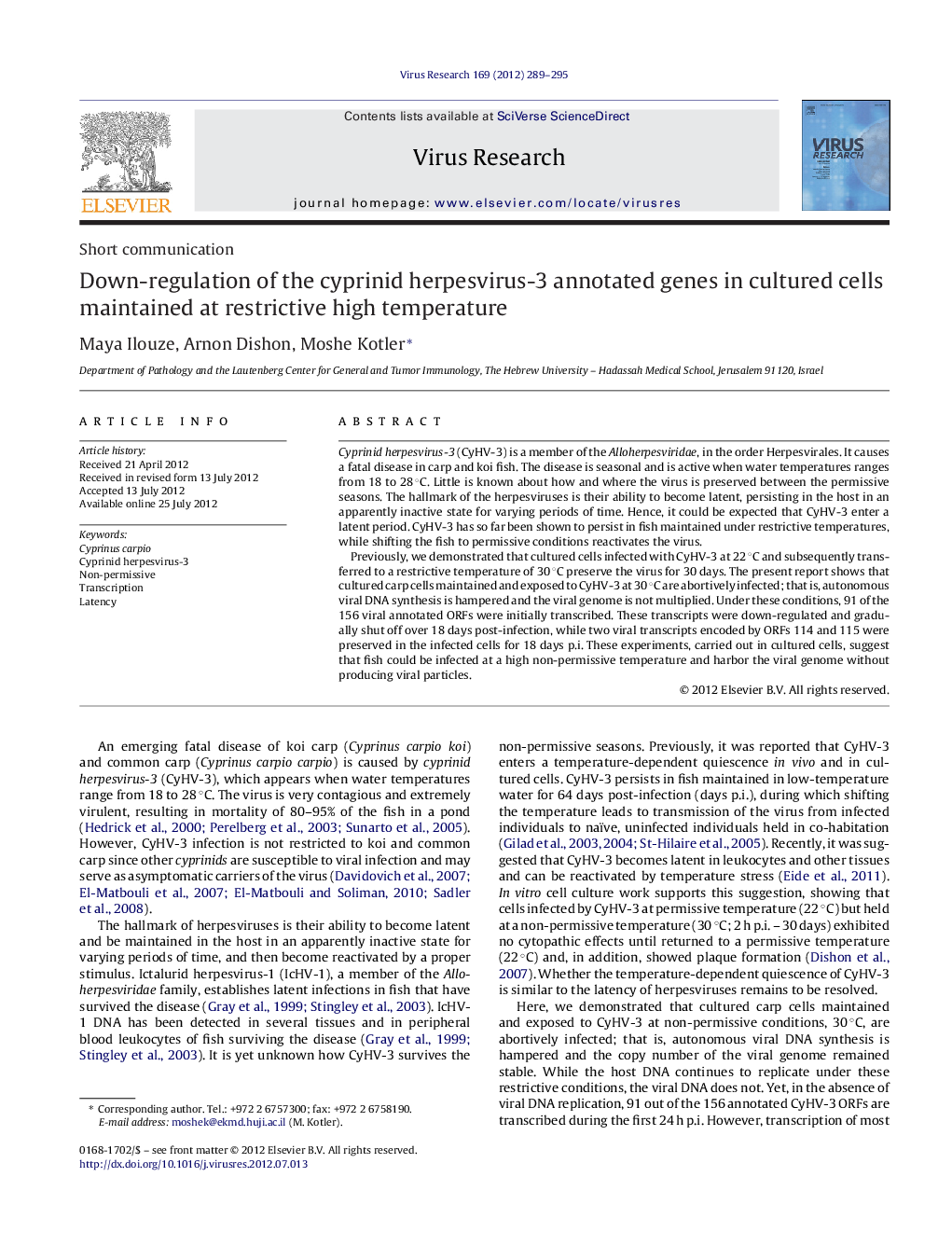| Article ID | Journal | Published Year | Pages | File Type |
|---|---|---|---|---|
| 6143157 | Virus Research | 2012 | 7 Pages |
Cyprinid herpesvirus-3 (CyHV-3) is a member of the Alloherpesviridae, in the order Herpesvirales. It causes a fatal disease in carp and koi fish. The disease is seasonal and is active when water temperatures ranges from 18 to 28 °C. Little is known about how and where the virus is preserved between the permissive seasons. The hallmark of the herpesviruses is their ability to become latent, persisting in the host in an apparently inactive state for varying periods of time. Hence, it could be expected that CyHV-3 enter a latent period. CyHV-3 has so far been shown to persist in fish maintained under restrictive temperatures, while shifting the fish to permissive conditions reactivates the virus.Previously, we demonstrated that cultured cells infected with CyHV-3 at 22 °C and subsequently transferred to a restrictive temperature of 30 °C preserve the virus for 30 days. The present report shows that cultured carp cells maintained and exposed to CyHV-3 at 30 °C are abortively infected; that is, autonomous viral DNA synthesis is hampered and the viral genome is not multiplied. Under these conditions, 91 of the 156 viral annotated ORFs were initially transcribed. These transcripts were down-regulated and gradually shut off over 18 days post-infection, while two viral transcripts encoded by ORFs 114 and 115 were preserved in the infected cells for 18 days p.i. These experiments, carried out in cultured cells, suggest that fish could be infected at a high non-permissive temperature and harbor the viral genome without producing viral particles.
